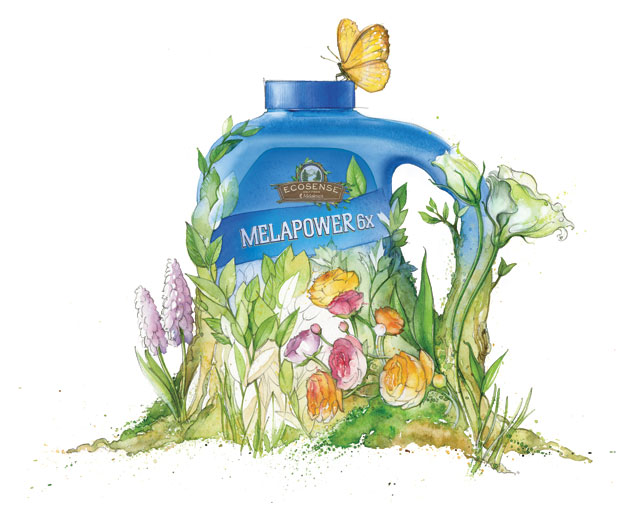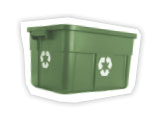
A cleaner world. We all want it. But how do you make a difference? A real difference for not only our own generation but those who will follow. It starts with understanding the four main ways our day-to-day living is making the world dirty. And then taking some simple steps to help make things clean again.
 1 PROTECT WATER
1 PROTECT WATER
It is important for us to protect our waterways from contamination.
Common household cleaning products contain harmful chemicals that end up
going down the drain.In the U.S., 500,000 tons of pollutants pour into lakes and rivers daily and many chemicals are not removed even after passing through water treatment facilities.
Use cleaning products without chlorine, phosphates and other harsh chemicals to help reduce the amount of pollutants that enter our waterways.
2 SAVE ENERGY
45% of your home energy costs come from space heating.
Program or manually turn down your thermostat by two degrees in the winter and turn it up two degrees in the summer to cut back on energy costs.
3 IMPROVE AIR QUALITY

According to the EPA, vehicle emissions and other toxic air pollutants that are found in some home cleaning products can contribute to health risks such as damage to the immune system and respiratory health problems.
Vehicle exhaust alone contributes about 60% of all air pollution emissions nationwide and up to 95% in cities.
Use mass transit, ride your bike, or carpool wherever possible to help reduce the amount of exhaust in your area.
4 REDUCE WASTE

Every year, the U.S. generates approximately 230 million tons of garbage. Less than one quarter of garbage is recycled. Recycling keeps unnecessary garbage out of landfills and conserves Earth’s previous natural resources.
In the U.S., each person generates about 4.6 pounds of garbage
every day.
Recycle old newspapers, aluminum cans, glass bottles, and plastic containers to help reduce the amount of trash.
www. workathomeunited.com/brandy


No comments:
Post a Comment